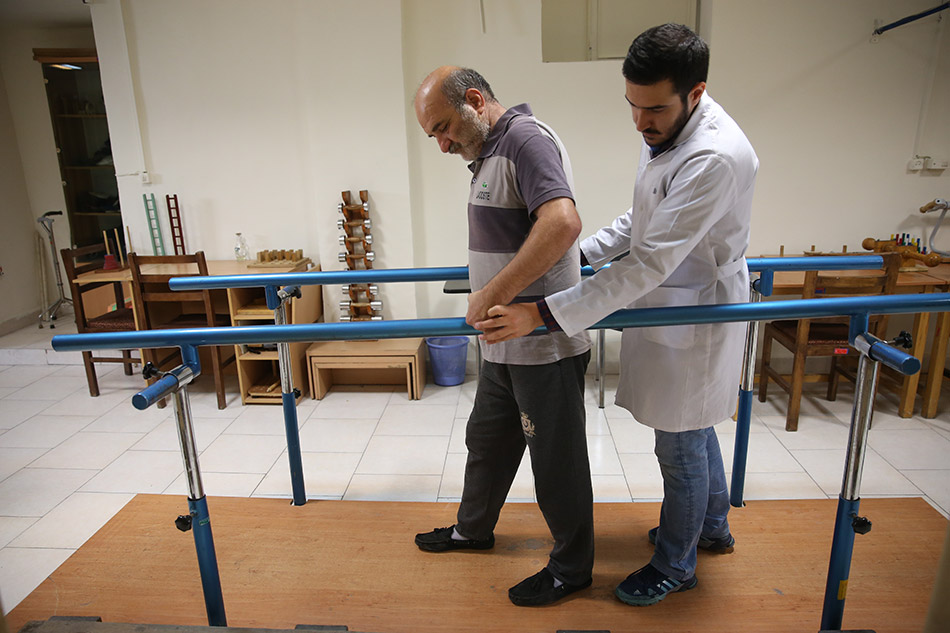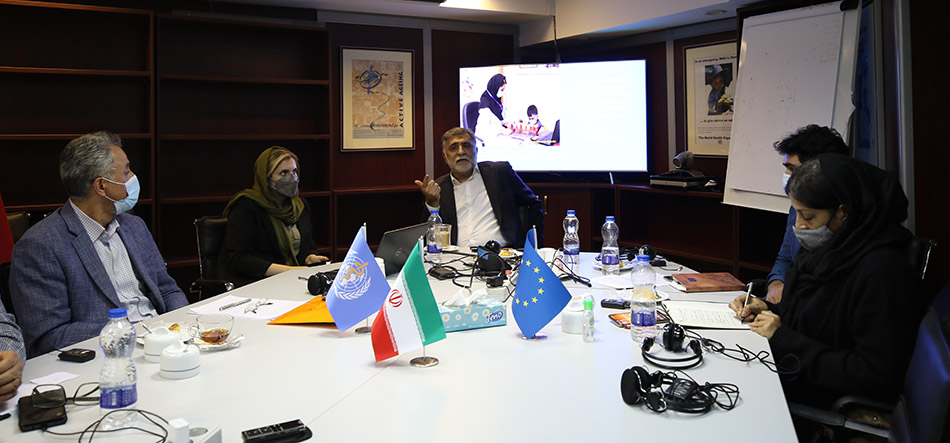 A medical employee helps a disabled man full bodily remedy. Photo: Akbar Badalkani.
A medical employee helps a disabled man full bodily remedy. Photo: Akbar Badalkani.
29 November – To assist Iran’s nationwide well being system in selling the well-being of older individuals and folks with disabilities, WHO collaborates with the Ministry of Health and Medical Education and Iran’s National Welfare Agency to implement a undertaking to enhance entry. ing. Enabling complete medical care in nursing houses and bettering the standard of life and dignity of susceptible populations in the course of the COVID-19 pandemic.
The undertaking might be co-funded with European Union Humanitarian Aid and can begin in June 2021 and final for 21 months. Increase the capability of long-term care amenities to answer COVID-19, procure assistive know-how (corresponding to wheelchairs and walkers) for probably the most susceptible, and supply tailor-made care and companies for older adults. Supporting catalytic and revolutionary actions to coach care employees. Support individuals with disabilities and set up on-line platforms and networks for analysis and coaching.
The undertaking was mentioned at a latest assembly in Tehran on November tenth. The assembly was attended by a visiting staff from the European Union Humanitarian Mission in Islamabad, Pakistan, consisting of Office Director Tahini Thammanagoda and Program Assistant Naeem Gul, in addition to the WHO. Dr. Saeed Jafar Hussein, Representative and Head of Delegation of the Islamic Republic of Iran, Project Team of the Healthy Population Program of WHO, Director and Representative of the Department of Family, Population, School Health and Mental Health of the Ministry of Health and Medical Education National Welfare of Iran Worked on the Japan Institute for Rehabilitation Office.

Delegates throughout dialogue at a gathering. Photo: WHO.
The assembly additionally mentioned the continuing emergency response, together with the inflow of Afghan refugees, in mild of latest developments in Afghanistan, and regarded present partnerships and alternatives for future cooperation.
“The function of this joint assembly is to debate points associated to assist for well being methods within the nation, particularly in states internet hosting refugees and indigenous peoples, and to spotlight the views of governments and European Union consultants,” Dr. Hussein stated. was talked about originally. That dialogue.
“From our strategic perspective, now we have witnessed the vulnerabilities of our communities, together with psychological well being, growing older, incapacity rehabilitation, and COVID-19 associated points. We want to offer higher care companies and there are 4 million refugees,” Dr. Hussein stated.
Representatives of the Iranian Ministry of Health and Medical Education and the National Welfare Organization will current interventions carried out by varied accomplice sectors and areas the place native populations and refugees want psychological and physiological assist via main well being care. did. The system has been revised.
“We need to spend money on bridging the hole between the recognized wants of nationwide communities and current amenities and infrastructure, in addition to new wants created by the brand new scenario in Afghanistan and the refugee disaster. , which is linked to an ongoing undertaking with Europe’s “Union Humanitarian Assistance”, stated Dr. Rahim Taghizadeh, Head of the Health and Population Unit at WHO Country Office.
“Current initiatives embody establishing a platform for making use of normative requirements and mechanisms corresponding to coaching and capability constructing for service suppliers,” he added, including that He talked about the revolutionary concept of establishing a community between universities. It strengthens collaboration between academia and practitioners and helps develop evidence-based follow.
“WHO recommends additional funding in capacity-building programs, extra interventions to enhance high quality of care and improve service utilization,” he concluded.
The European Union and its member states are the world’s largest suppliers of humanitarian assist. The European Union, via its Civil Protection and Humanitarian Assistance Unit (ECHO), helps thousands and thousands of victims of battle and disasters yearly. Headquartered in Brussels and with a worldwide community of discipline workplaces, the EU offers help to probably the most susceptible individuals primarily based on humanitarian wants.
*This doc is meant for humanitarian assist actions carried out with monetary assist from the European Union. The views expressed right here shouldn’t be interpreted in any approach as reflecting the official place of the European Union and the European Commission can’t be held answerable for the usage of the data contained therein.

